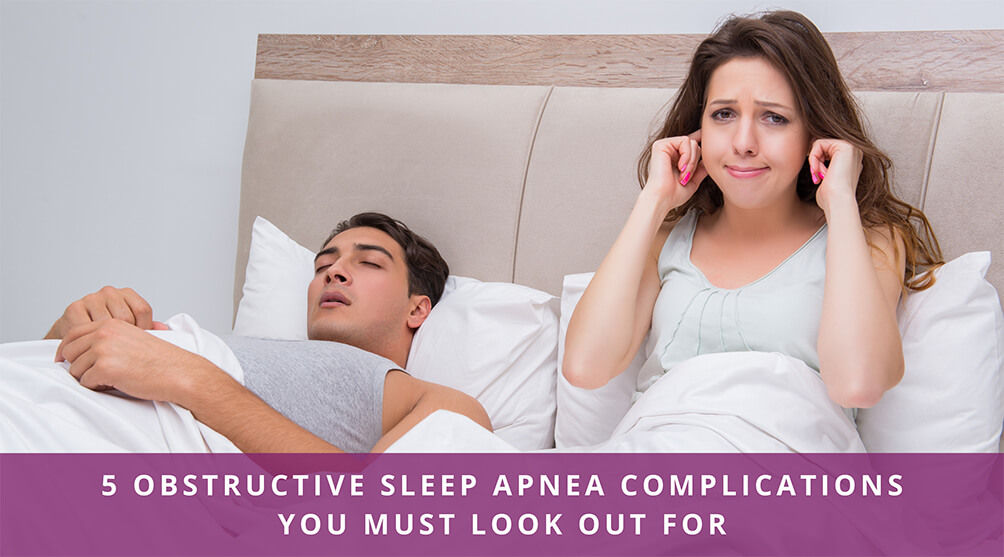5 Obstructive Sleep Apnea Complications You Must Look Out for
Obstructive sleep apnea is a common sleep-related breathing disorder, causing patients to constantly start and stop breathing while they’re asleep. There are different types of sleep apnea, with obstructive sleep apnea being the most common version. To learn further about obstructive sleep apnea complications and obstructive sleep apnea surgery, reach out to us at Richardsons Dental and Craniofacial Hospital. Our specialists are happy to help with all the information you need regarding obstructive sleep apnea, including treatment and obstructive sleep apnea surgery costs.
While anyone is likely to be affected, certain factors increase the risk of obstructive sleep apnea. Some risk factors include old age, narrowed airway, excess weight, diabetes, smoking, asthma, family members with OSA, chronic nasal congestion, and hypertension or high blood pressure. Men are almost thrice as likely to develop nasal congestion. Women in the post-menopause phase are likely to be diagnosed with OSA.
Complications of Obstructive Sleep Apnea
Some of the health complications associated with obstructive sleep apnea include:
Daytime sleepiness and fatigue: One of the most common obstructive sleep apnea complications is feeling tired and sleepy during the day. Due to the lack of restorative sleep at night, patients with OSA feel irritable and exhausted during the daytime. This causes them to be unable to devote their complete focus at work or even fall asleep while performing monotonous daily activities like watching TV or reading a book. It also makes them more prone to work-related accidents. Kids suffering from obstructive sleep apnea could perform poorly at school or display behavioral problems.

Cardiovascular Problems
Obstructive sleep apnea causes the blood oxygen levels to drop suddenly, damaging your cardiovascular system and increasing your blood pressure. Several patients suffering from obstructive sleep apnea tend to develop hypertension, which puts them at risk of heart disease. Obstructive sleep apnea can also lower one’s blood pressure as it amplifies the risk of abnormal heart rhythms.
Issues with Surgery and Medications
Obstructive sleep apnea can lead to problems in terms of consuming certain medications and getting general anaesthesia. Medications such as general anaesthetics, narcotic analgesics, and sedatives relax an individual’s upper airway, which could worsen the condition of someone with obstructive sleep apnea.
If you have obstructive sleep apnea, undergoing major surgery can worsen the condition, especially if you’re lying on your back or are sedated. Facing complications after surgery is quite common among patients with obstructive sleep apnea. Therefore, you must inform your doctor about your condition and its symptoms.
Eye Problems
Researchers have discovered that obstructive sleep apnea may lead to certain eye-related conditions, including glaucoma.
Sleep-Deprived Partners
When you snore loudly at night, it could disrupt your partner’s sleep cycle, often causing them to sleep in a different room. And if they cannot move to another room, they’re likely irritable the day after because they haven’t slept well at night.
Get in touch with our team to explore more about obstructive sleep apnea and how to receive the best possible treatment.

